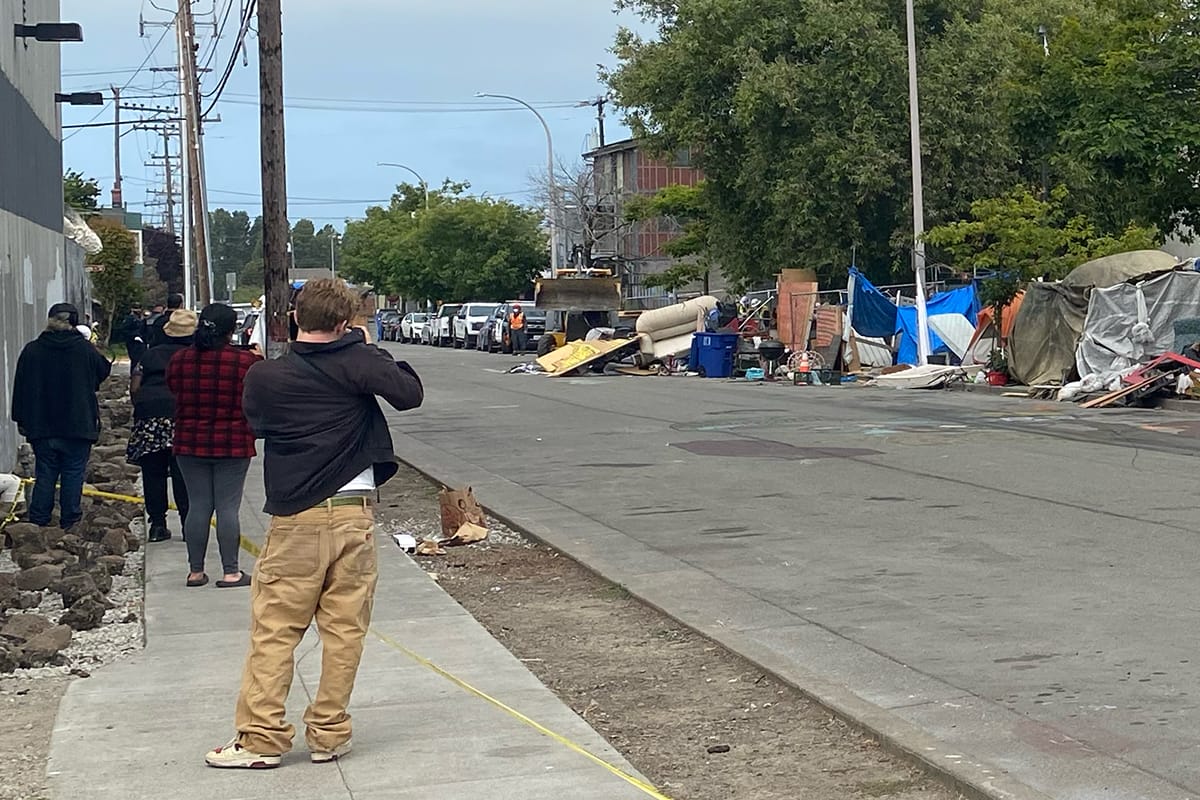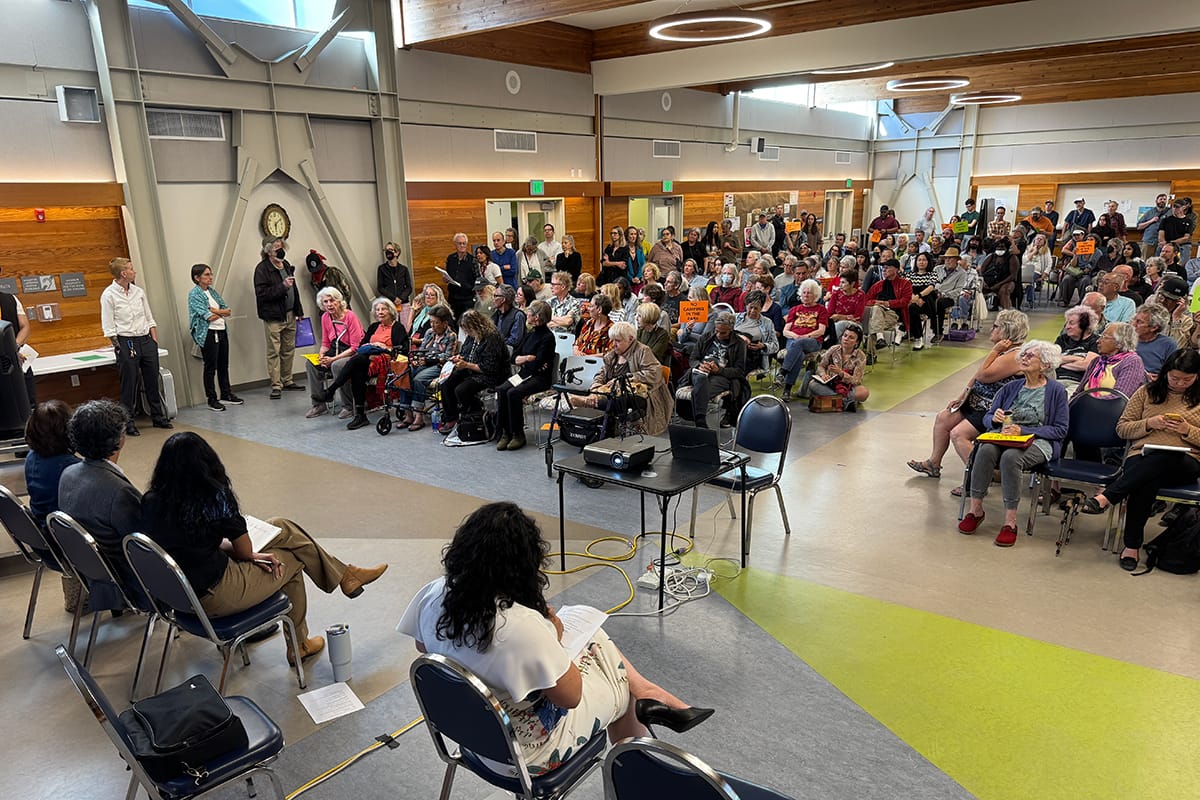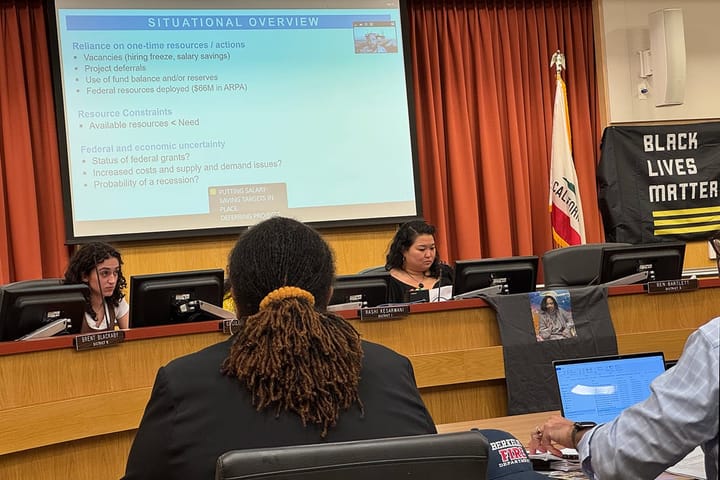Berkeley encampment closure lacked proper notice, judge says
"Safeguarding due process is imperative for all, but particularly important for the unhoused," Judge Edward Chen said in Thursday's ruling.
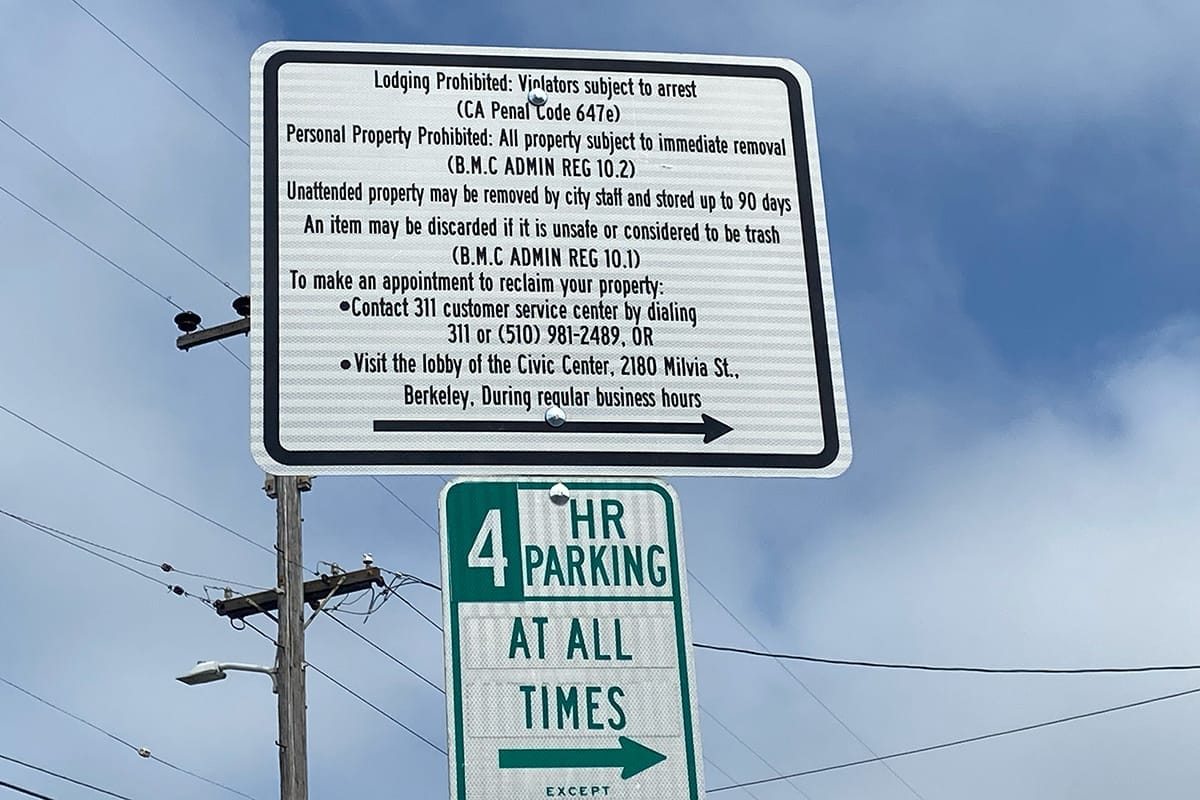
The city of Berkeley "violated due process" this week when it tried to close a homeless encampment on Harrison Street without proper notice, a judge has ruled.
On Wednesday, U.S. District Judge Edward Chen ordered the city to stop its removal of the Harrison Street camp until at least next week, due in part to a previously scheduled hearing on the matter.
In a written ruling Thursday, Chen said the city had failed to update encampment residents about its plan to close the camp, which was originally set for February.
After the city's earlier "abatement" notifications, the Berkeley Homeless Union sued the city, resulting in a temporary order from Judge Chen that halted city action for several months.
On May 23, the temporary order expired and the matter was set to return to court June 10 for consideration of a preliminary injunction, which could stop the city from taking action on Harrison Street until the case is over.
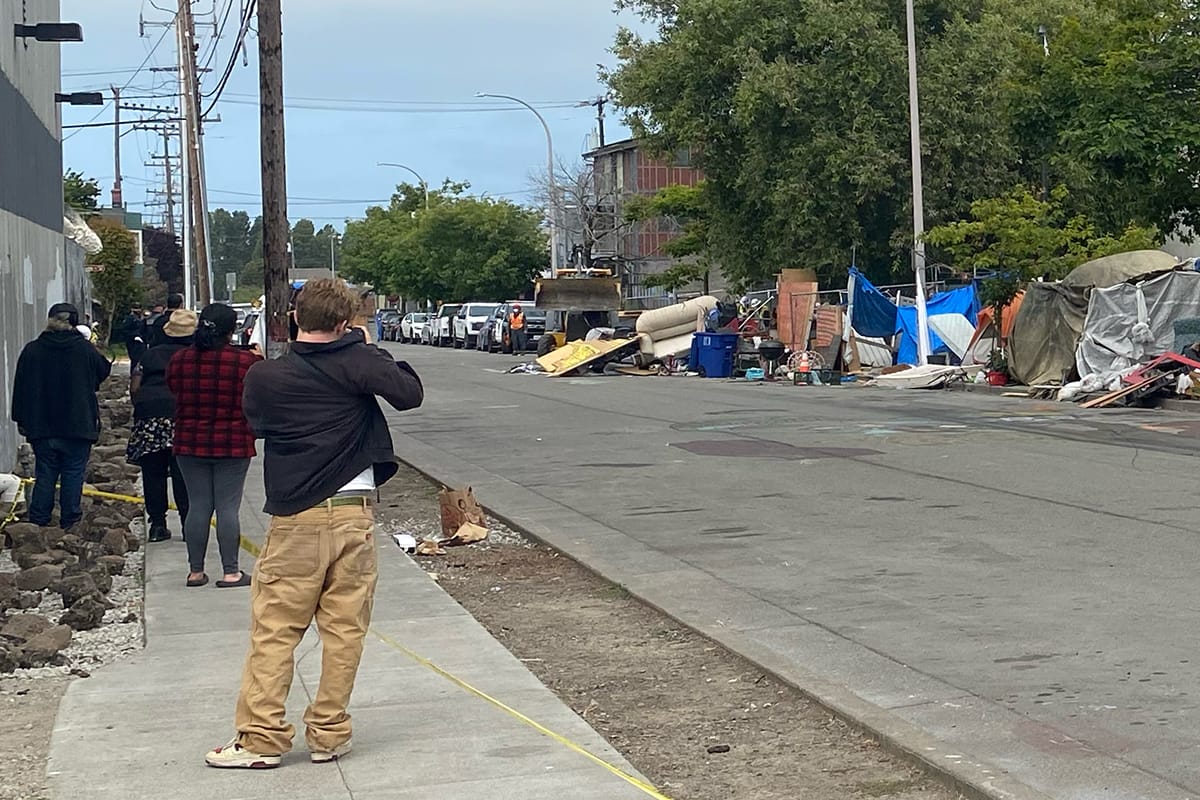
In his new explanatory ruling, Chen wrote that the city had not ordered encampment residents to leave or notified them of the impending camp closure — aside from public advisories on Jan. 7 and Jan. 31.
"Nonetheless, on the morning of June 4, 2025, without notice or warning, and just six days before the scheduled hearing on the preliminary injunction motion, the City began its abatement," he wrote.
"Common justice requires that no man shall be condemned in his person or property without notice and an opportunity to make his defence," Chen continued, quoting an 1863 U.S. Supreme Court case.
"Safeguarding due process is imperative for all, but particularly important for the unhoused," the judge continued.
Chen went on to describe Berkeley's earlier notices about planned abatement in the Harrison corridor as "insufficient" because they were given before he issued his temporary restraining order.
The encampment residents also had a "reasonable expectation," he wrote, "that any abatement action in the interim would be proceeded by some reasonable notice, both to allow them to prepare to move and to be able to seek immediate court relief if necessary."
"Under these circumstances," Chen continued, "taking action without prior notice offends due process."
Chen's expanded ruling about the Harrison Street encampment was posted online in the court file shortly after 3 p.m. Since then, no new filings have been added.
The parties are set to return to court to discuss the matter before Judge Chen on Tuesday, June 10.
In recent weeks, the Berkeley Homeless Union also sued the city in federal court to stop any enforcement action at a homeless encampment in Ohlone Park.
Both sides appeared in court Thursday, before a different judge, to argue motions in the Ohlone Park case.
That judge, Haywood Gilliam Jr., said he would make his ruling after further consideration.
Stay tuned for updates.
Harrison homeless camp: The background
